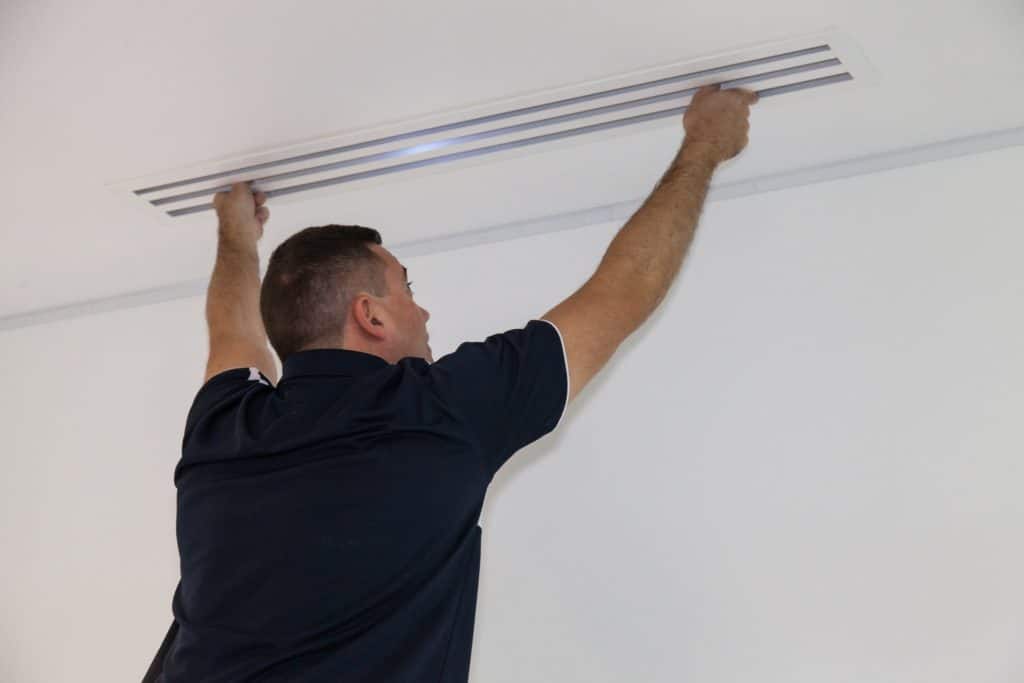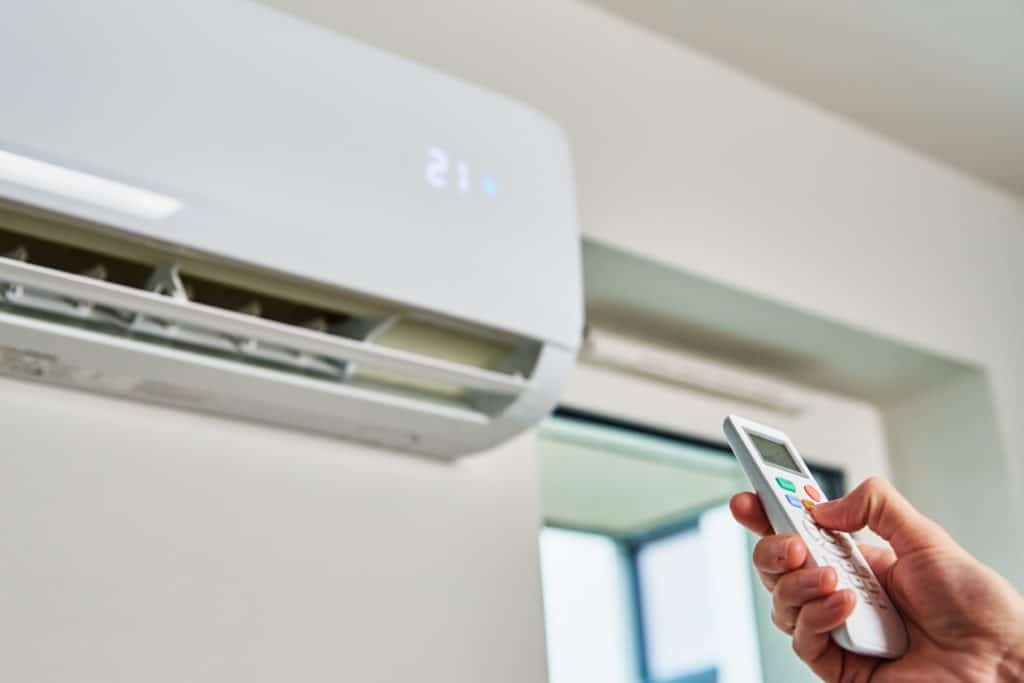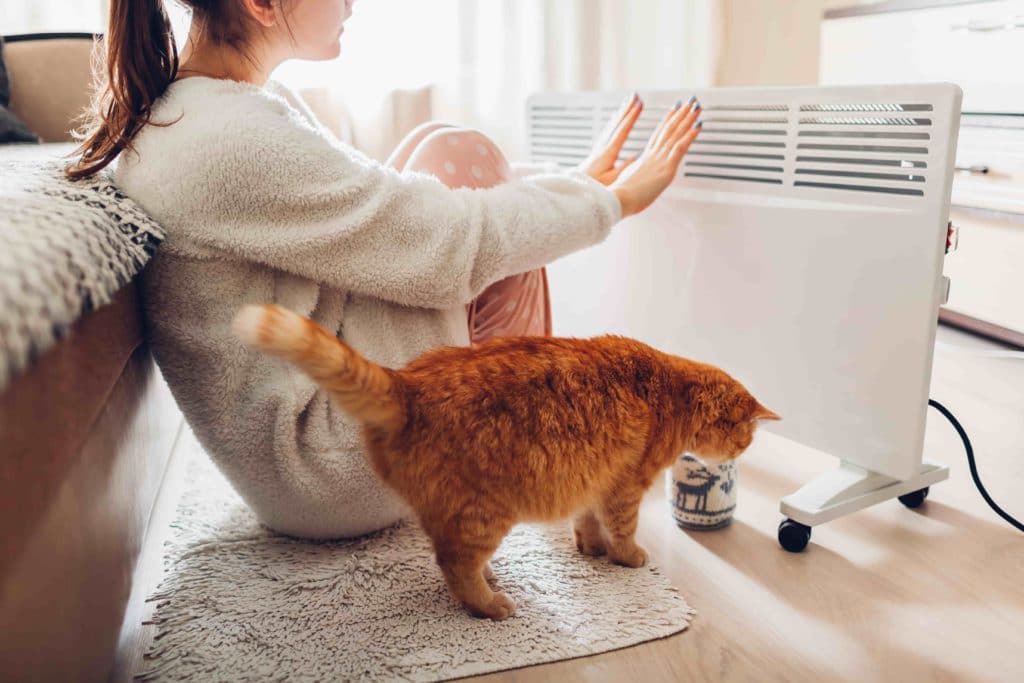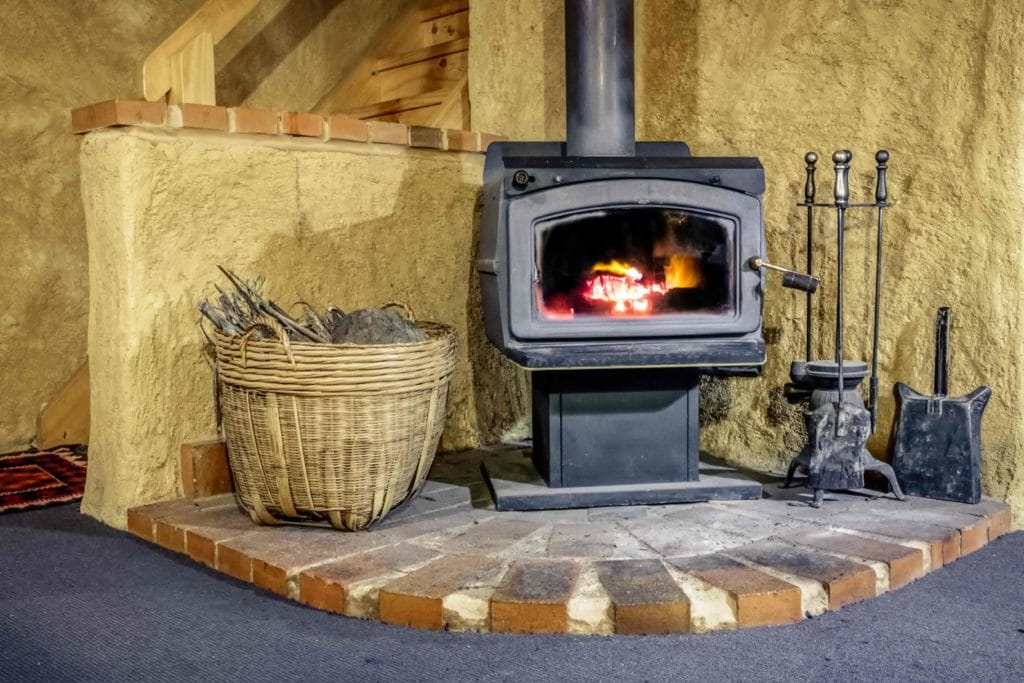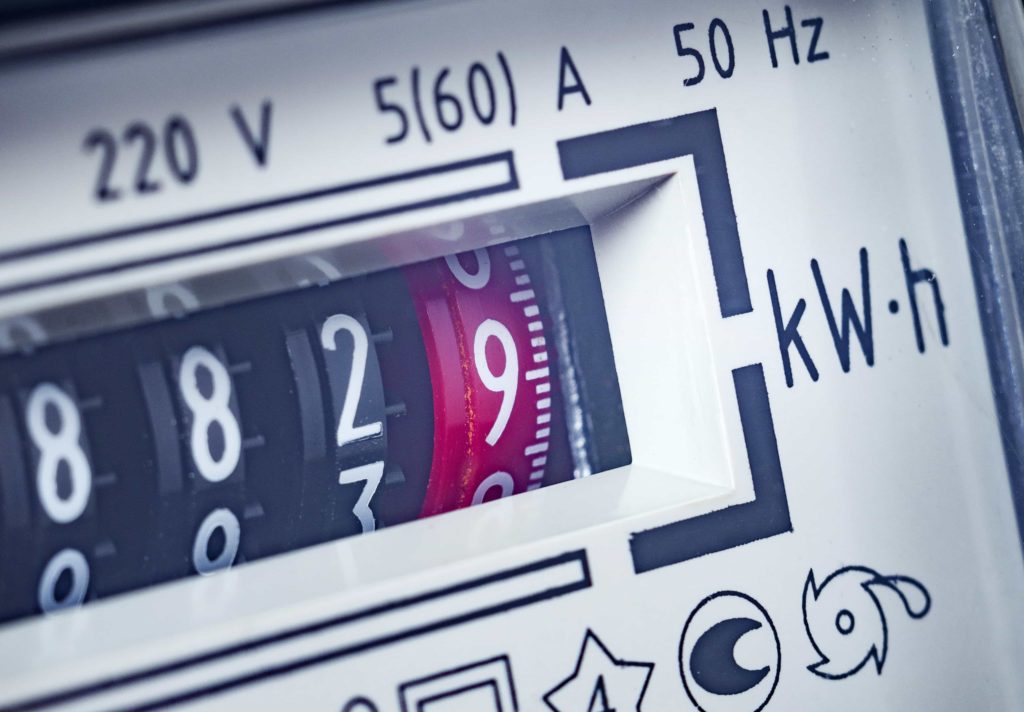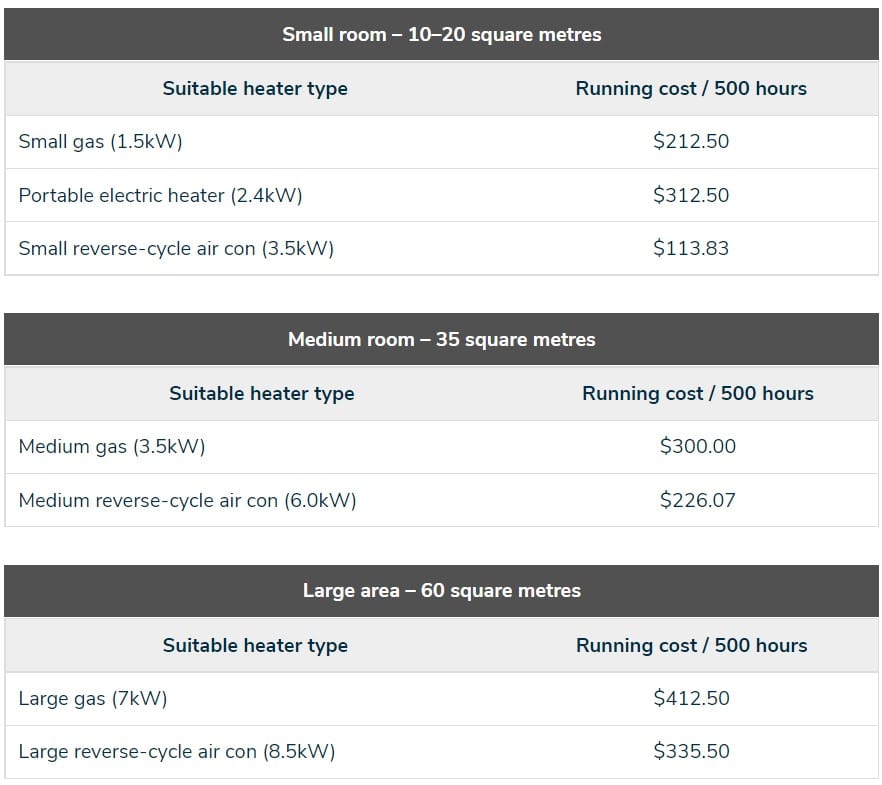Every year when the cold weather rolls in, the search to find the best heating system for your home begins.
What exactly does BEST mean? That all depends on whether you want to heat your home for comfort or heat your home in the most cost-efficient way. By the end of this article, you should have a clear idea of which method is the most efficient in comfort and cost.
Your choice of heating options can be broken down into five areas:
- Ducted Reverse Cycle
- Split System
- Electric – Portable/Fixed
- Gas – Portable/Fixed
- Wood Fired
To give you a fair assessment, we’ll analyse the performance of each over an extended period. Clearly, some heating options have a smaller up-front cost, like a portable electric heater. However, long term, a portable electric heater may not last as long and can deliver a higher power bill per month.
What are your Heating Options?
Ducted Reverse Cycle System
In terms of efficiency and long-term value for money, a ducted reverse cycle air conditioner is at the top of the list. A single unit can heat and cool an entire home. Even better, a ducted reverse cycle unit can be programmed to heat specific zones, making it even more cost efficient. Think about it, why heat your bedrooms all day long when you only need to use them at night.
The central unit is normally installed in the roof space (out of view) and works by absorbing heat from outside air and also the heat of compression from the compressor motor which then heats the air and is blown through the vents in the ceiling. Because ducted reverse cycle units don’t use the same method as conventional heaters, they are much more energy efficient.
If you have a large open-plan family/dining area, a ducted system will heat the whole area evenly. You don’t need to huddle into a corner to keep warm, your air conditioning specialist will work out how many vents you’ll need to ensure the temperature stays consistent across the whole zone. For the health conscious, filters within the ducted unit will remove any air contaminants like dust or insects ensuring that the air you breathe is clean.
Benefits of Ducted Reverse Cycle Air Conditioning
- Heats and cools the whole home from one unit
- Can be programmed to heat/cool specific zones
- Consistent temperature in all areas of the home
- Filters out contaminants in the air
- More energy efficient than conventional heaters
Discover more about Ducted Reverse Cycle Air Conditioners.
Split System
Like a ducted unit, a split system air conditioner is designed to heat and cool. A split system consists of an indoor unit and an outdoor compressor connected by copper piping and electric cable. Ideally, you’ll want both units to be ‘back-to-back’. This means that the indoor unit is installed on an external wall.
One split system unit may be all you need to heat a large room within your home. The fan will blow the heat around the area and even into the adjoining rooms. For a larger home, you can choose a multi-split system air conditioner that uses one outdoor compressor to power multiple wall units. Split system air conditioners are surprisingly quiet and energy efficient.
Another reason people choose split systems is the relatively low up-front cost. For the heat it delivers and the longevity you get out of a unit, it’s very price friendly.
Benefits of Split System Air Conditioning
- Can be programmed to heat or cool
- One unit can heat a whole zone within your home
- Can have multiple indoor units run from one compressor
- Quiet and energy efficient
- Low up-front cost
Find out how much a Split System unit costs to run.
Portable Heating
Electric Heaters
Portable electric heaters can include fan convection heaters, oil heaters, panel heaters and fixed wall units. These heaters are usually designed to heat a small room (like a bedroom). Many people buy portable electric heaters thinking they will heat their large family/dining area – unfortunately, these units can struggle to heat large areas. If you increase the temperature to speed up the heating process, your power bill may rise just as quickly.
Gas Heaters
If you have a gas bayonet installed, you can use a portable gas heater. Similar to other portable heaters, a gas heater works better to heat a single room. Be aware that there is plenty of advice from the WA Government to ensure your gas heater is safe. One of the biggest issues with unserviced gas heaters is the release of carbon monoxide. It’s a gas you can’t see or smell but it can make you very sick and, in some cases, can be fatal. While you may want to keep your home sealed tight to minimise cold drafts coming in, when operating a gas heater, you must ensure the heated area is well ventilated.
Benefits of Portable Heating
- Cheap up-front cost
- Works well to heat a single room
- Relatively quiet
- Portable – can be moved around the home
What are the other options for heating and cooling your home?
Wood Fired Heating
Many homes that were built in the 80s and 90s installed a wood fired heater. Today, if you step outside early on a winter morning, you‘ll notice the distinctive smoky smell which indicates many homes still use a wood fired heater. While a wood heater is great at heating a large room, it doesn’t provide the same consistent ‘whole home’ heat you get from a ducted air con system. There is another drawback which is an even bigger issue.
Recent studies have outlined how harmful wood fired heaters can be to your health and those who live nearby you. The smoke produced is similar to that from a bushfire and can cause breathing issues for people who suffer from asthma. The issue is becoming so big that some states are offering buy-back schemes to convert people from wood fired heating to a cleaner solution. Recently, a local Perth council lobbied the WA State Government to introduce a similar scheme in Western Australia. For all of these reasons, it wouldn’t make sense to invest in a wood fired heater right now.
Benefits of Wood Fired Heating
- Can generate a lot of heat
- Enough heat for multiple rooms
- Operates quietly
- Doesn’t use electricity or gas
Got questions about heating your home? Click here to find out more.
How Much Does it Cost to Heat Your Home?
As mentioned at the top of this article, some heating options can be cheap initially but will sting you with power costs. Here is a general breakdown of the costs for each heating option.
Ducted Reverse Cycle Air Conditioning
The price for a complete installed unit starts at $8500. If you have a bigger home and require more ducts than standard, the price may be slightly higher. The cost of running your ducted reverse cycle unit all depends on the energy star rating. A seven-star rated unit will use 20% less energy than a five-star rated unit. Again depending on the product you install and the temperature you have your unit set at, your heating costs can range between 13c – 36c per hour.
Split System air conditioner
A fully installed split system unit starts from $1900. A complete unit can be installed and up and running within a few hours. If you’re upgrading from a conventional portable heater, you could reduce your current heating bill by 39% – 70%. This is due to the efficiency of a split system and the limited energy it needs to operate.
Portable heaters
Portable heaters can range in price from $30 – $3000. The price is normally dictated by the brand, the number of kWh and the energy star rating. For an electric heater, you can expect to pay anywhere between 30c – 65c per hour.
Wood fired heaters
As mentioned above, some governments are already encouraging owners of wood fired heaters to convert to a more energy efficient reverse cycle heating unit. If you are looking to purchase a wood fired burner you can expect to pay anywhere from $800 – $4000 – that doesn’t include installation. Running costs are relatively cheap as you’re burning timber. A 20 kilo bag of firewood retails for around $20.
Based on research from choice.com.au, here’s what you can expect to pay for heating your home. This research was carried out in a moderate climate for six days over 12 weeks in winter.
Running costs based on electricity price 30c/kWh and gas price 3c/MJ. Cost may vary depending on your home, local climate and price you pay for electricity and gas.
Courtesy of choice.com.au
It’s important to consider all the economic and environmental benefits before you choose a heating option. A larger up-front cost may actually save you more in the long run. If you want a quote on installing a reverse cycle air conditioner or split system unit, talk to home heating experts at Perth City Air.


